Custom Titanium Flange For Chemical Industry
Titanium flanges, with the excellent performance of non-ferrous metal titanium or titanium alloys, have gradually emerged in the chemical industry and become an ideal choice for many corrosive media transportation pipelines.
- Grade 1 Titanium Flange
- Grade 2 Titanium Flange
- Grade 5 Titanium Flange
- Grade 7 Titanium Flange
- PN2.5、PN6、PN10、PN16
- PN25、PN40、PN63、PN100
- Class150、Class300、Class600
- Class900、Class1500、Class2500

Trusted Titanium Flange Manufacturer For Chemical Industry
In the complex and challenging environment of the chemical industry, the safe and stable operation of the pipeline system is crucial. As a key component of pipeline connection, the performance of the flange directly affects the reliability of the entire chemical system. Titanium, a metal with unique physical and chemical properties, gives titanium flanges excellent corrosion resistance, high strength and good high temperature resistance. Titanium flanges show unparalleled advantages in dealing with various strong acids, strong alkalis and highly corrosive media such as chloride ions.
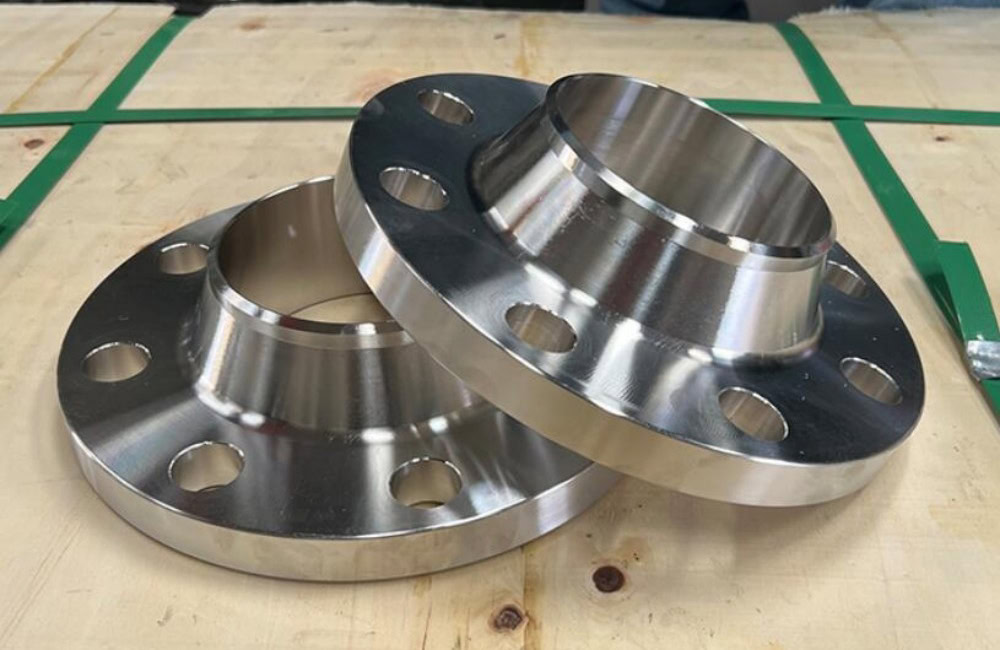
Welding Neck Titanium Flange is often used in high-pressure, high-temperature and strict sealing requirements of pipeline systems. Its weld quality is high and can withstand greater pressure and stress. In some fine chemicals, butt-welded titanium flanges are used to transport high-purity, high-value and corrosive chemicals to avoid impurities.
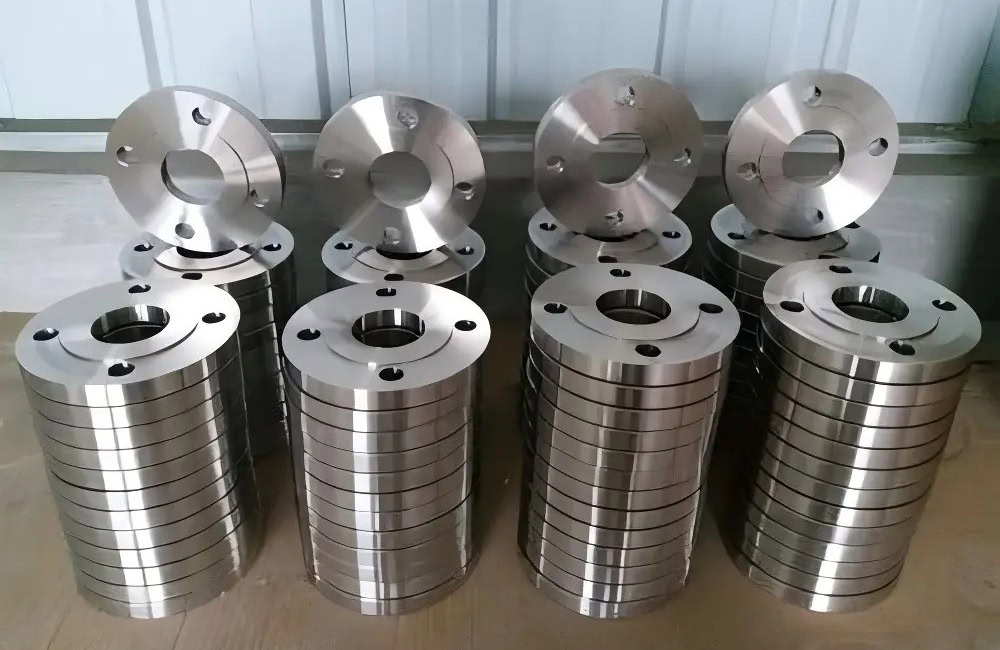
Due to its low cost and convenient installation, it is often used to connect various small reactors, metering tanks and other equipment. In the transportation of relatively weakly corrosive chemical media, such as low-concentration brine and dilute acid solutions, flat-welded titanium flanges can provide reliable connections.
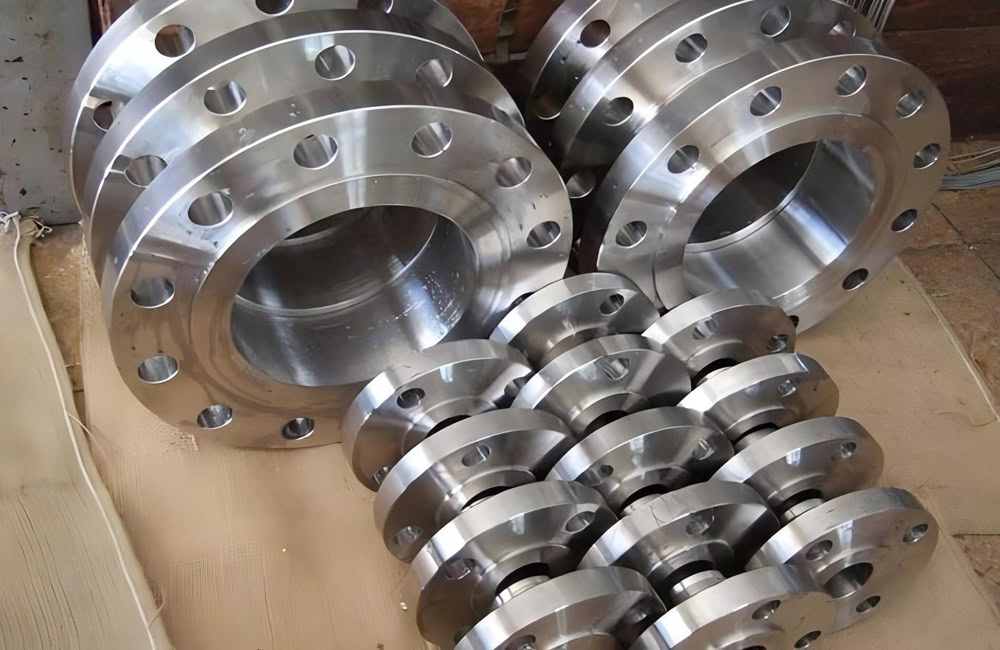
Socket-welded titanium flanges can ensure the sealing and cleanliness of the connection and prevent impurities from contaminating chemicals. Socket-welded titanium flanges are also often used in small-flow, high-precision pipeline systems, and their connection method can reduce resistance and turbulence in the pipeline.
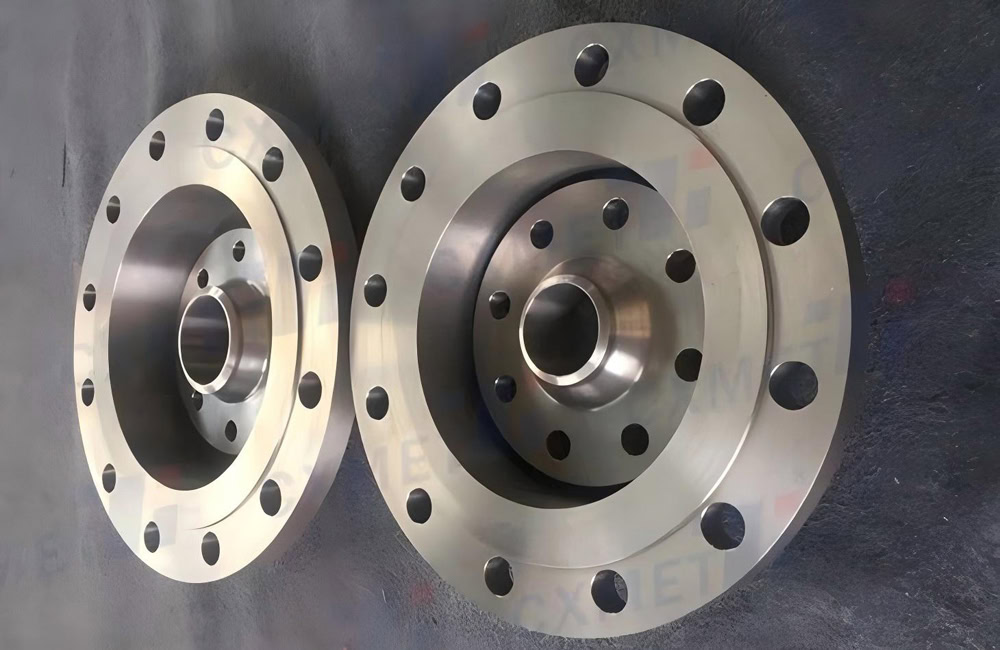
Lap joint Titanium Flange is mainly used in the chemical industry for pipeline systems with certain displacement or vibration. In the pipeline system of offshore chemical platforms, the platform will shake due to external forces such as waves and sea breeze, and the loose titanium flange can adapt to this dynamic environment.
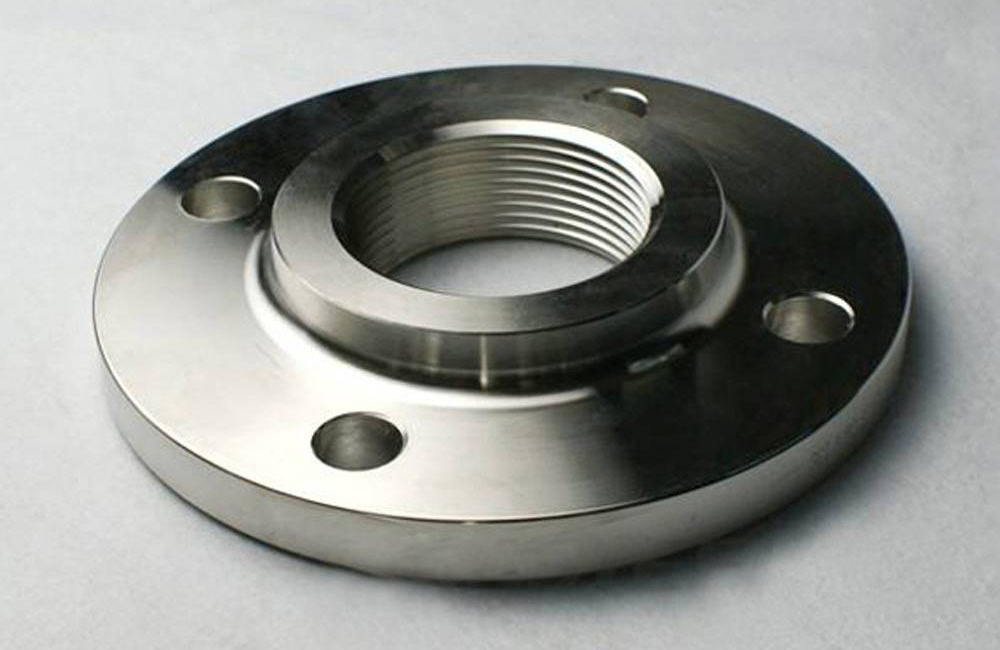
Threaded titanium flanges are often used in some pipeline connections in the chemical industry that require frequent disassembly and assembly. In sampling pipelines, instrument connection pipelines, etc., threaded titanium flanges can achieve quick connection and disassembly without using welding equipment.
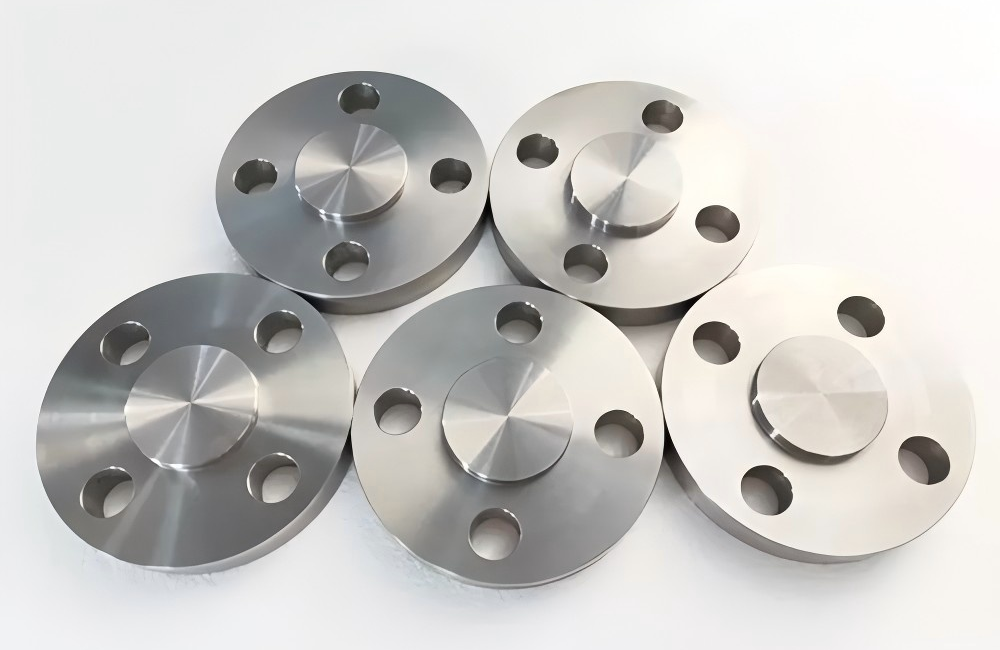
Blind titanium flanges are mainly used for plugging and isolation of chemical pipeline systems. They are connected to the end of the pipeline by bolts to prevent medium leakage. Blind titanium flanges can be used as temporary plugging measures at spare pipelines or reserved interfaces in chemical production.
Manufacturing Titanium Flanges
The raw materials for manufacturing titanium flanges are mainly titanium and titanium alloys. The purity of titanium, the content of alloying elements and the content of impurities will have an important impact on the performance of titanium flanges. Industrial pure titanium has good corrosion resistance and is suitable for general chemical corrosion environments. Adding different alloying elements, such as aluminum and vanadium, further improves the strength and high temperature resistance of titanium alloys, making them suitable for more demanding working conditions.
Forging is a key link in the manufacture of titanium flanges. Forging improves the organizational structure of titanium and increases its strength and toughness. According to the shape and size of the titanium flange, select the appropriate forging equipment and process parameters. Common forging methods include free forging and die forging. Free forging is suitable for manufacturing titanium flanges with simple shapes and large sizes. Die forging is suitable for manufacturing titanium flanges with complex shapes and high precision requirements. The blank is placed in the mold and filled with the mold cavity under pressure to obtain precise shape and size.
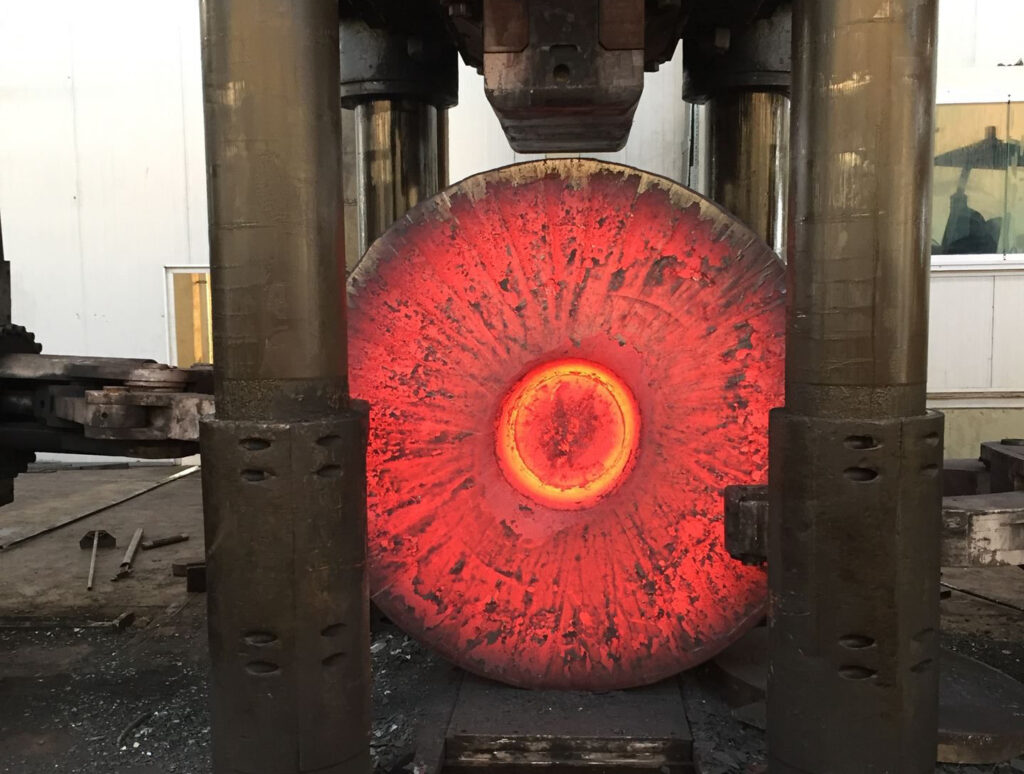
CNC Machining is an important step in creating a titanium flange that meets the design requirements from the forged titanium blank. CNC Machining includes turning, drilling, milling, etc. Turning is mainly used to process the outer diameter, inner diameter, sealing surface, etc. of titanium flanges. Through the rotation of the lathe and the feed movement of the tool, the dimensional accuracy and surface roughness are accurately controlled. Drilling is to create bolt holes for connection on the titanium flange, and the position accuracy and verticality of the holes need to be guaranteed. Milling is used to create some special shapes and structures of flanges, such as flanges, grooves, etc.
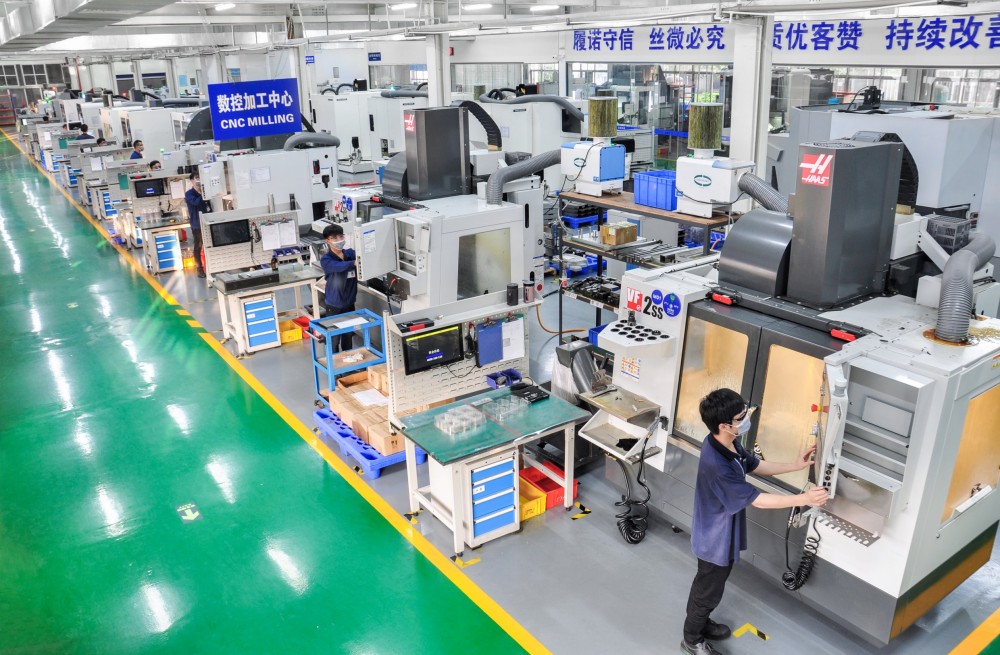
Heat Treatment
Heat treatment is an important means to improve the performance of titanium flanges. Heat treatment improves the structure and performance of titanium flanges. Annealing can eliminate the residual stress generated in forging and CNC machining, reduce hardness, and improve its plasticity and toughness. Normalizing refines the grains, improves the strength and toughness of the material, and improves its comprehensive mechanical properties. Quenching and tempering further improve the hardness and strength of titanium flanges to meet some working conditions with high requirements for mechanical properties.

Surface Treatment
Surface treatment is of great significance for improving the corrosion resistance and appearance quality of titanium flanges. Common surface treatment methods include pickling, passivation, electroplating, etc. Pickling can remove impurities such as oxide scale and oil stains on the surface of titanium flanges to improve their corrosion resistance. Passivation is to form a dense oxide film on the surface of titanium flanges to further enhance their corrosion resistance. Electroplating can plate a layer of other metals such as nickel, chromium, etc. on the surface of titanium flanges, which can not only improve its corrosion resistance, but also improve its appearance.
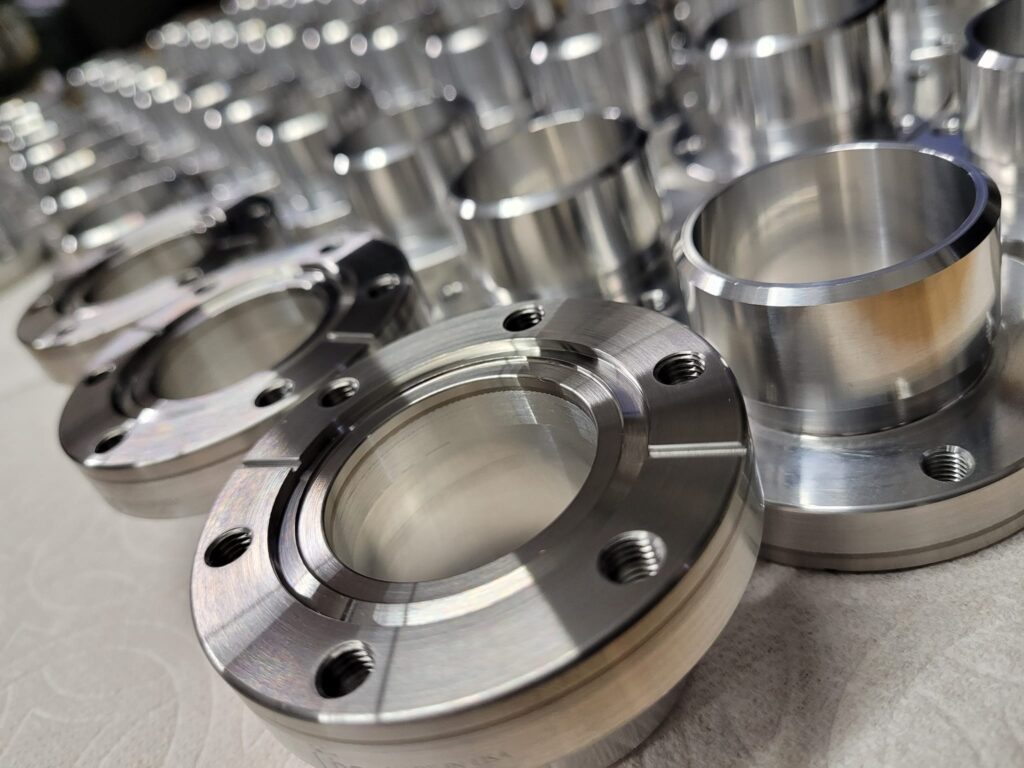
Application
Titanium flanges have shown great application value and development potential in the chemical industry due to their excellent performance. They are widely used in chlor-alkali industry, soda ash, petrochemical fiber, fertilizer, marine chemical industry and coal chemical industry. Titanium flanges play a key role in ensuring the safe and stable operation of the pipeline system and promoting the development of the chemical industry towards a more efficient, environmentally friendly and safer direction.
Chlor-alkali Industry
In the chlor-alkali industry, highly corrosive media such as chlorine and sodium hydroxide are involved. Titanium flanges play a key role in metal anode electrolyzers, and are used to connect the various components of the electrolyzer to ensure the smooth progress of the electrolysis process. Titanium flanges are also widely used in ion membrane electrolyzers and anode pumps, tubular wet chlorine coolers, chlorine wastewater dechlorination towers and other equipment. Due to its excellent corrosion resistance, it can effectively resist the corrosion of chlorine and alkali, greatly extending the life of the equipment.
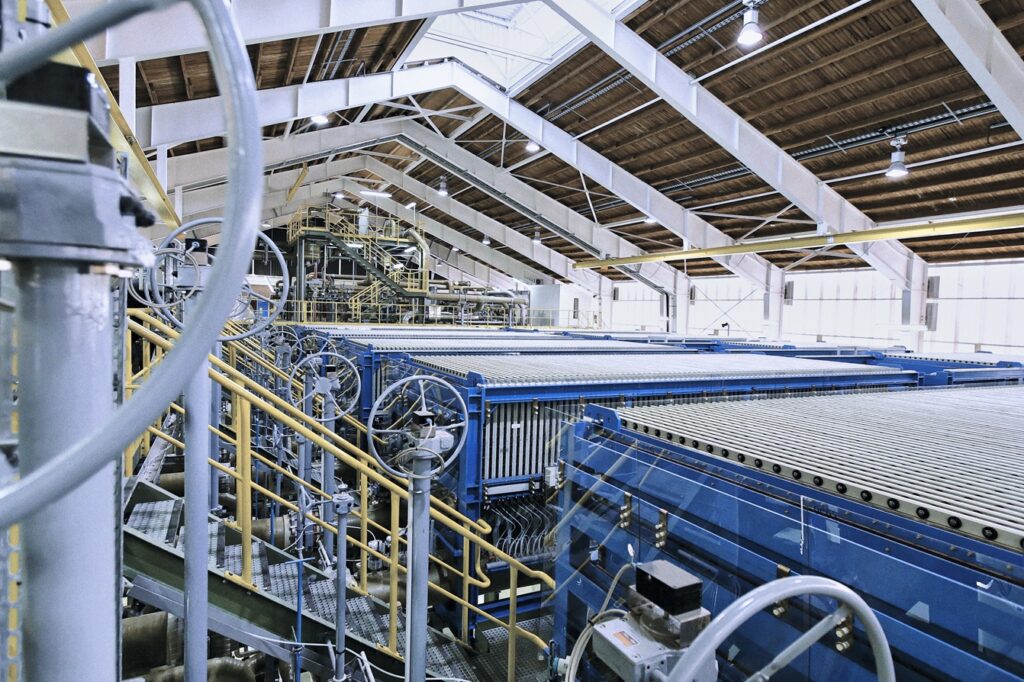
Soda Ash Industry
Titanium is mainly used for pipe connections of crystallization coolers, ammonia condensers at the top of distillation towers, ammonium chloride mother liquor heaters, plate heat exchangers, umbrella plate heat exchangers, carbonation tower cooling pipes, carbon dioxide turbo compressor rotor impellers, alkali liquid pumps and other equipment. Titanium flanges can ensure the reliability of pipeline connections and the stable operation of soda ash production with their corrosion resistance, high strength and high temperature resistance
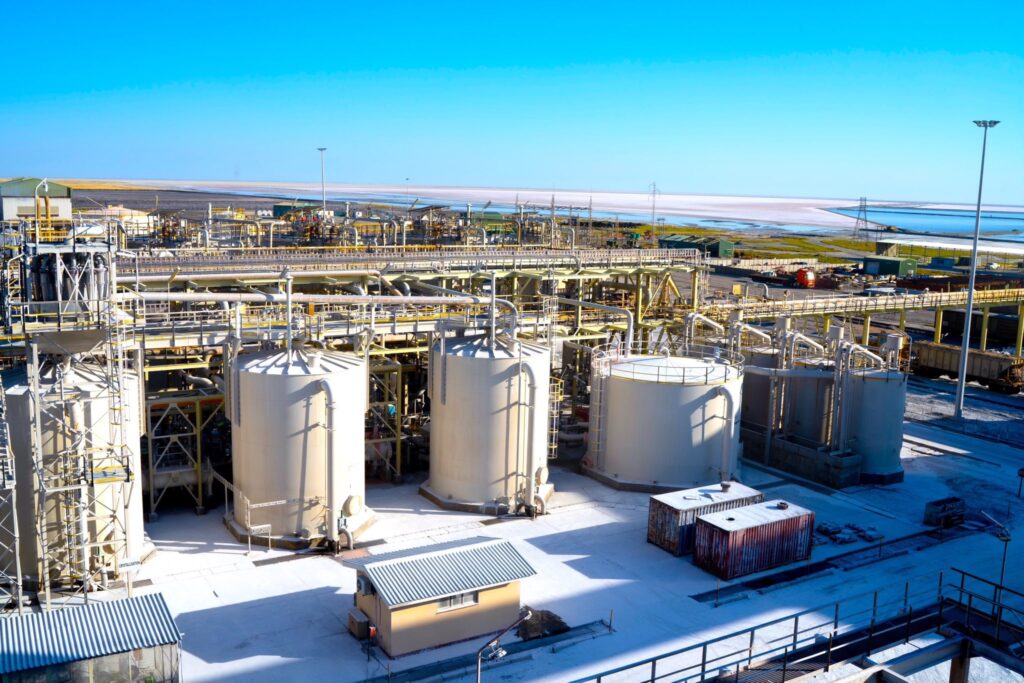
Petrochemical Fiber Industry
Polyester, nylon, vinylon and other petrochemical enterprises have widely used titanium equipment and titanium flanges. In polyester production, titanium flanges can withstand high temperature, high pressure and highly corrosive media, ensuring the stable transportation of materials, which is of great significance to improving the quality and production efficiency of polyester products.

Fertilizer Industry
In fertilizer production, such as urea, titanium is used for pipeline connections of urea synthesis tower linings, ammonia stripping towers, general decomposition tower heaters, methylamine pump inlet and outlet valves and springs, high-pressure mixers and other equipment. Evaporators, preheaters and coolers in potassium nitrate and potassium carbonate production also require the use of titanium equipment and titanium flanges.

Marine Chemical Industry
Marine chemical industry is an industry that uses marine resources for chemical processing. Its environment is characterized by high salt, high humidity and high corrosion. Seawater itself contains a large amount of chloride ions and other salt substances, which are highly corrosive to metal materials. In the fields of seawater desalination, marine petrochemicals, etc., titanium flanges have become the preferred material for pipeline connection due to their excellent seawater corrosion resistance.
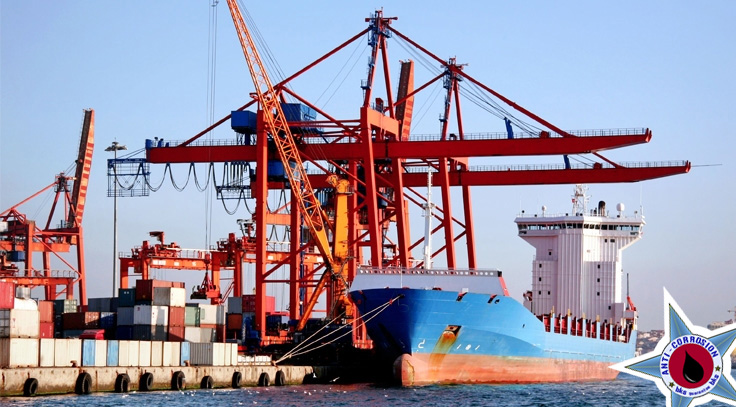
Titanium flanges have shown great application value and development potential in the chemical industry due to their excellent performance. From various types of butt welding, flat welding, socket welding and other different connection methods, to rich titanium grades covering industrial pure titanium and various titanium alloys, as well as rigorous and sophisticated manufacturing technology, titanium flanges can meet various complex working conditions and special needs in the chemical industry.